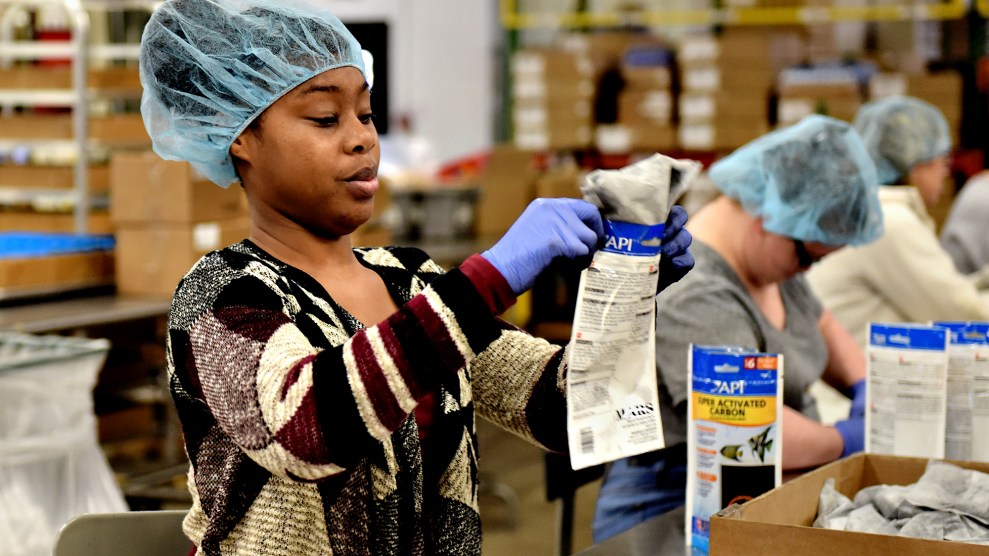
The 1998 IRS reform bill signed into law by President Clinton last week has been hyped as one of those bills for all of us: a populist’s pipe dream come true. It will transform the IRS into a kinder, gentler agency, proclaimed the media. It “will give the American people something they deserve,” said President Clinton. However, closer inspection of the bold new legislation reveals that it is still business as usual in Washington, where shady deals are made in backrooms, the rich get the breaks, and veterans—who shed their blood to make America sometimes a great nation—get the shaft.
One of the most hyped tax breaks in the IRS reform package is the new capital gains legislation, which reduces the time an investor has to hold property from 18 months to one year in order to be eligible for a lower tax rate.
What does this mean for most of us? “It has trivial effects for the average taxpayer,” says Bob McIntyre, director of Citizens for Tax Justice. “The average taxpayer might save a few pennies.” Capital gains taxes represent only about 1.2 percent, or $12, of federal income taxes paid by most Americans (those making $50,000 a year or less).
In reality, McIntyre says, this is a tax break for the rich. “Seventy-six percent of the capital gains cut goes to people who make over $200,000,” people who spend on average 17.1 percent, or $20,675, of their federal taxes on capital gains.
Big investors aren’t the only ones who get a tax break. Wealthy septuagenarians and their progeny will be interested to learn that they can shelter even more of their lucre from the government. A last-minute provision slipped into the bill in conference committee by Sen. William Roth (R-Del.) allows those over the age of 70 with annual incomes over $100,000 to turn their pokey old IRAs into Roth IRAs—which allow investors to let their money grow tax-free.
Investors will have to pay taxes on their old IRAs in order to move their money into a Roth IRA, which could raise $8 billion over the next 10 years according to Congress’ Joint Committee on Taxation. However, McIntyre claims these numbers are a shell game, since tax revenues received from the Roth IRAs in the long run will be less than from the original IRAs.
“That was their attempt to cook the books,” says McIntyre. “They basically borrowed money to pay for the bill and they will have to pay it back later.
“What it says is that very high-income elderly people who have IRAs they don’t plan to use can convert those to Roth IRAs by paying taxes due at that point. After that, there is no tax on future earnings. The reason you would do this is to leave it to your heirs.”
In addition to what was added, something notable was left out as well. In an oversight left over from the 1997 tax law, beneficiaries of estates worth more than $17 million earned a $200,000 tax break. This blunder is projected to cost the U.S. Treasury $880 million over the next decade. Despite Senate and Treasury Department efforts to fix it in the new IRS reform bill, Rep. Bill Archer (R-Texas) insisted, also in conference committee, that the loophole be kept on the books. Archer represents a wealthy district of Houston.
But the most controversial measure in the new IRS law has nothing to do with taxes at all; instead, it eliminates benefits for veterans with tobacco-related illnesses, and for their families. This too was added in conference committee, where the House and Senate reconcile their differing versions of a bill—meaning that when the bill came up for a vote, it could only be passed or declined, not amended. Conference reports also make it difficult to track exactly who added what measures to a specific bill, thus giving congressional leaders room to maneuver around issues which might prove unpopular amongst their constituents.
The vet-benefit ambush prompted Sen. John D. “Jay” Rockefeller IV (D-W.Va.), one of two senators to vote against the reform bill citing veterans issues, to call the bill “an example of a process run amok, where any provision, no matter how heinous or unrelated, can be added in conference under the cover of darkness.”
Sen. Max Cleland (D-Ga.), a conference member who refused to sign the report due to the veterans issue—but voted for it anyway—complained on the Senate floor that “conference committees are the vehicle by which lawmakers fast-track controversial measures behind closed doors in order to avoid unpopular votes. There are no fingerprints. Issues which were not in the House-passed bill, not in the Senate-passed bill, too often mysteriously appear in the final conference report.” Cleland says even he doesn’t know exactly who inserted the benefit cut.
So how did a veterans issue end up in an IRS conference report? The trail leads to Senate Majority Leader Trent Lott (R-Miss.), but it begins at the White House. In an effort to shave $17 billion from his 1999 budget, President Clinton proposed reversing a 1993 Veterans’ Affairs Department ruling that gave cash disability benefits to veterans with tobacco-related illness; he used the savings to offset a boost in education spending. Senate Budget Chairman Pete Domenici (R-N.M.) later allocated the offset to pay for a transportation bill the President thought was $19 billion too big, a move the administration backed. When Sen. Rockefeller vowed to offer an amendment to strike the language affecting veterans’ benefits, Sen. Lott told CongressDaily he would stick it in another bill “where [Rockefeller] can’t touch it.” The cut finally showed up in the IRS reform conference report, where Rockefeller and others could do nothing about it.
The new law eliminates veterans’ right to make disability claims for tobacco-related illnesses, even if they can prove their tobacco addiction and subsequent illnesses took place while serving on active duty. It also eliminates survivors benefits to the relatives of servicemen who have died from tobacco-related diseases. The legislation has raised the ire of veterans’ groups across the country.
“The entire veterans community is asking what they will go after next,” said Steve Robertson, national legislation director for the American Legion. Robertson points out that veterans with tobacco-related illnesses were not exactly breaking the government’s bank. “To date, there have been about 9,000 claims filed [for tobacco-related illnesses]. 5,000 of those have been adjudicated and only 359 have been granted. The approval rate is less than 8 percent. For the few that would have gotten the benefit, not only does it knock out compensation, but if they die from tobacco-related illnesses, their families don’t qualify for survivor benefits.”
Robertson, a Gulf War veteran, says this is especially odious to veterans as it was the U.S. government that promoted smoking within the military in the first place. “Squad packs had cigarette rations in them. There were no warnings on cigarettes in the military until the 1970s. The World War I through the Vietnam vets, every one of those guys should be entitled to [the disability benefit]. The Department of Defense is still the largest distributor of tobacco products. There were a lot of things I couldn’t get access to in Dhaharan, but tobacco wasn’t one of them.”
“Lott deliberately sticking this to a conference with no chance for amendment shows that this was a money grab,” says Robertson. “The transportation bill comes out and it goes over by $19 billion. These benefits save $17 billion. A blind man could see what’s happening here.”












